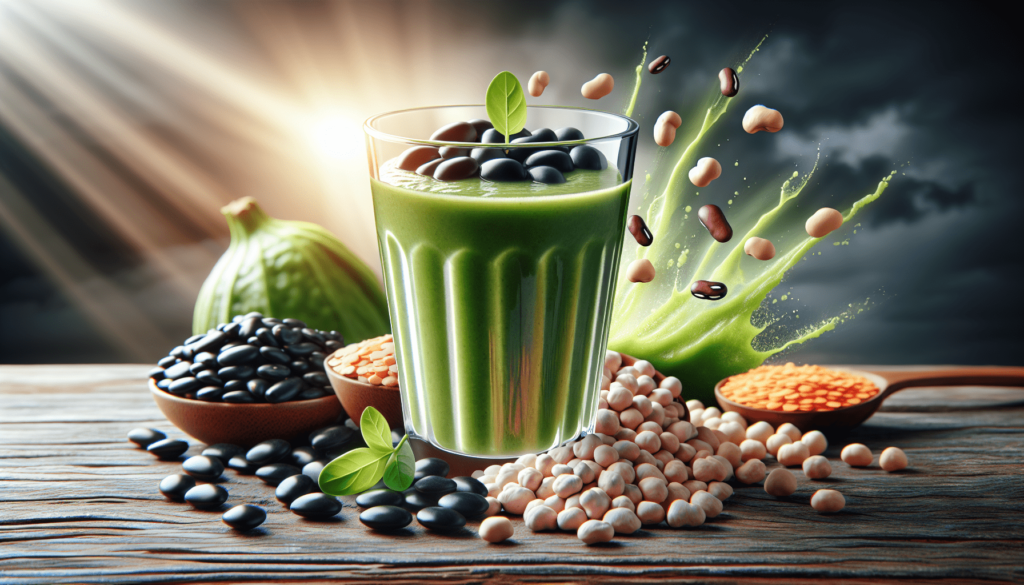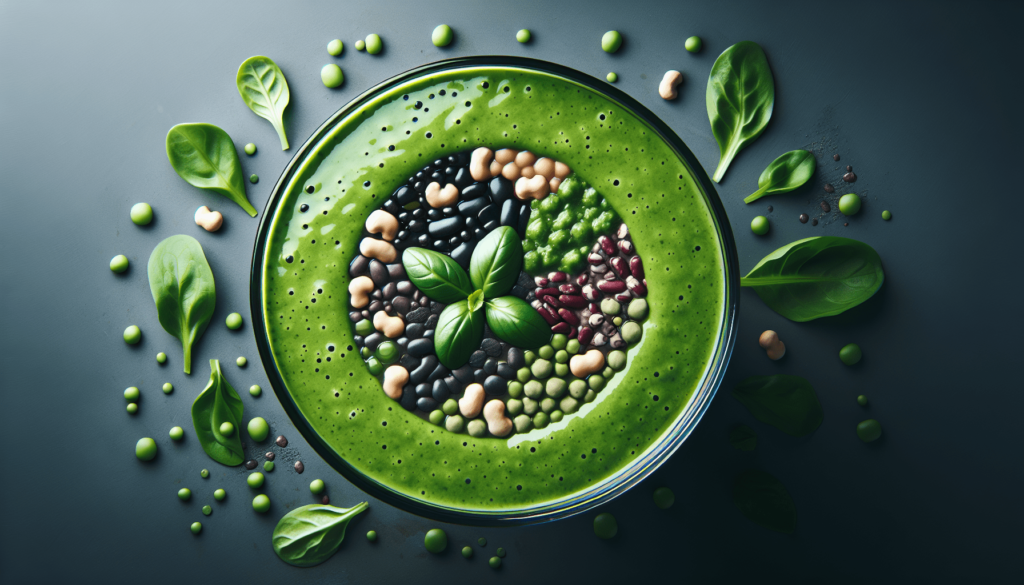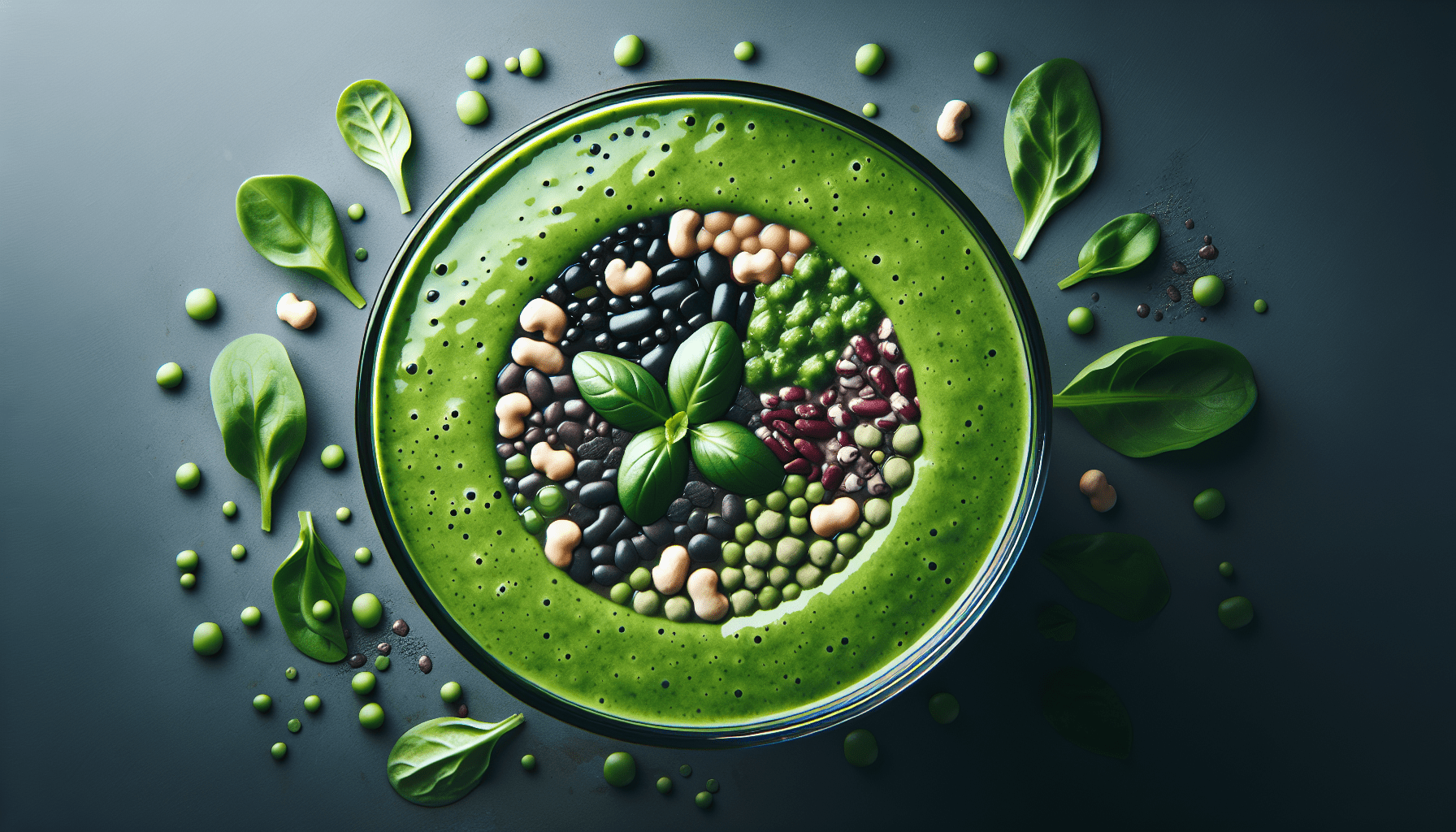If you’re an athlete or someone who leads an active lifestyle, you may have wondered if there are certain types of beans that can boost your performance and support your overall health. Well, the good news is that beans can indeed be a valuable addition to your diet, offering a wide range of benefits. From black beans packed with protein and fiber to kidney beans brimming with iron and folate, exploring the world of beans can open up a whole new realm of nutrition for athletes and active individuals. So, let’s dive into the realm of legumes and discover the specific beans that can truly fuel your body and improve your athletic performance.

Benefits of Beans for Athletes and Active Individuals
Beans are an incredible source of nutrients and offer numerous benefits for athletes and active individuals. Whether you’re a professional athlete or just enjoy staying active, incorporating beans into your diet can help enhance your performance, support muscle recovery, and provide sustained energy throughout your workouts. Here are some of the key benefits of beans:
High in Protein
Protein is essential for athletes and active individuals as it helps repair and build muscle tissue. Beans are an excellent plant-based protein source, making them a great alternative for those who follow a vegetarian or vegan diet. They are especially beneficial for athletes looking to increase their protein intake without relying solely on animal-based sources. By including beans in your meals, you can ensure you’re getting an adequate amount of protein to support your athletic endeavors.
Rich in Fiber
Fiber plays a crucial role in maintaining a healthy digestive system and promoting regular bowel movements. For athletes and active individuals, having a healthy digestive system is essential for optimal performance. Beans are packed with fiber, which not only aids in digestion but also helps keep you feeling fuller for longer. This can be beneficial for weight management and preventing overeating, especially for individuals trying to maintain or lose weight while staying active.
Packed with Essential Nutrients
In addition to protein and fiber, beans are rich in essential nutrients that are important for athletes and active individuals. They are a great source of vitamins and minerals such as folate, iron, magnesium, potassium, and zinc, which are all crucial for overall health and athletic performance. These nutrients play a role in energy production, muscle function, and immune system support, among other functions. By including beans in your diet, you can ensure you’re providing your body with the necessary nutrients it needs to thrive.
Slow Release of Energy
One of the significant benefits of beans for athletes is their slow release of energy. Beans are classified as complex carbohydrates, which means they provide a steady and sustained source of energy. This attribute is particularly beneficial for endurance athletes who require a steady supply of energy to fuel their workouts or competitions. Unlike simple carbohydrates that provide a quick burst of energy followed by a crash, the complex carbohydrates in beans offer a more consistent energy release, allowing athletes to maintain their performance levels for longer durations.
Types of Beans for Optimal Performance
Not all beans are created equal when it comes to their impact on athletic performance. Some beans offer specific benefits and nutrients that can be advantageous for athletes and active individuals. Here are a few types of beans that are particularly beneficial:
Black Beans
Black beans are nutrient powerhouses that offer numerous benefits for athletes. They are an excellent source of protein, making them an ideal addition to post-workout meals or snacks. Black beans also contain a significant amount of iron, which is crucial for delivering oxygen to the muscles during exercise. Additionally, they are rich in antioxidants that help combat inflammation and promote overall muscle recovery.
Kidney Beans
Kidney beans are known for their high fiber content and ability to boost energy levels. This type of bean contains complex carbohydrates that provide a sustained release of energy, making them an excellent choice for endurance athletes. Kidney beans are also rich in potassium, a mineral that supports cardiovascular health and aids in muscle repair and recovery.
Chickpeas
Chickpeas, also known as garbanzo beans, are a versatile legume that offers several benefits for athletes. They are an excellent source of plant-based protein, making them an ideal choice for vegetarian or vegan athletes. Chickpeas are also rich in fiber, which promotes digestive health and helps maintain stable blood sugar levels. Additionally, they possess anti-inflammatory properties, which can aid in reducing exercise-induced inflammation and promoting faster recovery.
Lentils
Lentils are nutrient-dense legumes that offer numerous benefits for athletes and active individuals. They are packed with protein, fiber, and essential vitamins and minerals, making them an excellent choice for those looking to optimize their performance. Lentils are known to boost stamina and endurance, making them a valuable addition to the diet of endurance athletes. Furthermore, their nutrient profile supports heart health and assists in muscle growth and repair.

Incorporating Beans into an Athlete’s Diet
Now that we understand the benefits of beans and the specific advantages of various bean types, let’s explore some practical ways to incorporate these nutritional powerhouses into an athlete’s diet. Here are a few ideas:
Pre-Workout Snack or Meal
Beans can be an excellent choice for a pre-workout snack or meal. They provide a combination of complex carbohydrates and protein, which can fuel your exercise and help prevent muscle breakdown. Consider enjoying a bean-based wrap or a simple bean salad before your workout to provide sustained energy and support muscle function.
Post-Workout Recovery
After a strenuous workout, it’s crucial to replenish your energy stores and support muscle recovery. Including beans in your post-workout meal can help achieve these goals. Consider making a hearty bean and vegetable soup or a protein-packed bean and grain bowl. These types of meals provide the necessary nutrients and amino acids to facilitate muscle repair and enhance recovery.
Protein-Packed Salads and Wraps
Salads and wraps make for quick and convenient meals, perfect for athletes on the go. By adding beans to your salads or wrapping them in a whole-grain tortilla, you can create protein-rich meals that will keep you feeling satisfied and energized. Experiment with different bean varieties and combinations of vegetables to keep your salads and wraps exciting and flavorful.
Bean-based Soups and Stews
Soups and stews are hearty meals that can be easily packed with beans. By incorporating beans into your favorite soup or stew recipes, you can boost their nutritional content and create a satisfying and filling dish. Whether it’s a classic black bean soup, a kidney bean chili, or a chickpea curry, the options are endless when it comes to incorporating beans into soups and stews.
Bean Flour for Baking
For athletes with dietary restrictions or those simply looking for creative ways to include beans in their diet, bean flour can be a fantastic option. Bean flours, such as chickpea flour or black bean flour, can be used as a substitute for traditional wheat flour in baking. This allows you to enjoy nutritious bean-based treats like protein-packed cookies, brownies, or muffins.
Potential Drawbacks of Beans for Athletes
While beans offer numerous benefits for athletes and active individuals, it’s essential to be aware of potential drawbacks or considerations. Here are a few potential issues to keep in mind:
Gas and Bloating
Beans are notorious for causing gas and bloating due to their high fiber content. This can be uncomfortable, particularly during exercise or physical activity. To minimize the risk of digestive discomfort, gradually increase your bean intake and ensure proper cooking methods, such as soaking and rinsing. Also, consider incorporating other digestive aids, such as ginger or fennel, into your meals to alleviate potential discomfort.
Phytic Acid Content
Beans contain phytic acid, which can hinder the absorption of certain minerals, such as calcium, iron, and zinc. While this is generally not a concern for individuals with a balanced diet, athletes with increased nutrient needs should be aware of this and ensure they are obtaining these minerals from other sources. Soaking and sprouting beans can help reduce the phytic acid content and enhance mineral absorption.
Lectins and Digestive Issues
Lectins are naturally occurring compounds found in many foods, including beans. Some individuals may be more sensitive to lectins and may experience digestive issues, such as nausea or diarrhea. However, cooking beans thoroughly can significantly reduce lectin content and minimize the risk of digestive problems. If you have a history of digestive issues or are particularly sensitive, consult with a healthcare professional or a registered dietitian before significantly increasing your bean consumption.
Anti-Nutrients
Certain anti-nutrients, such as protease inhibitors and amylase inhibitors, are present in beans. These compounds interfere with the digestion and absorption of proteins and carbohydrates. However, cooking methods, such as boiling or steaming, can help inactivate these anti-nutrients and make the nutrients in beans more bioavailable. Therefore, it’s essential to adequately cook beans to maximize their nutritional benefits.
Tips for Preparing and Cooking Beans
To maximize the nutritional benefits of beans and minimize potential drawbacks, here are some tips for preparing and cooking beans:
Soaking and Sprouting
Soaking beans overnight in water before cooking can help reduce cooking time and enhance nutrient availability. Additionally, sprouting beans by soaking them in water and allowing them to germinate for a few days can further increase their nutrient content and reduce anti-nutrients. Rinse beans thoroughly after soaking or sprouting to remove any residue or excess anti-nutrients.
Cooking Methods
When cooking beans, it’s important to use the appropriate cooking methods to ensure they are thoroughly cooked and safe to consume. Boiling, steaming, or pressure cooking are the most common methods used to cook beans. Follow the recommended cooking times and temperatures for specific bean varieties to achieve optimal results. Avoid undercooking beans, as this can lead to digestive discomfort or potential bacterial contamination.
Seasoning and Flavoring
Beans are incredibly versatile and can be seasoned and flavored in various ways to enhance their taste and appeal. Experiment with different herbs, spices, and seasonings to create flavorful bean dishes. Adding ingredients such as garlic, onion, cumin, or chili powder can add depth and enhance the taste of beans. Additionally, consider using low-sodium broths or homemade vegetable stocks to enhance the flavor of cooked beans without adding excessive salt.
Consulting a Nutritionist or Dietitian
While beans offer numerous benefits for athletes and active individuals, it’s always wise to consult a nutritionist or registered dietitian for personalized recommendations. A nutrition professional can assess your specific needs, goals, and dietary preferences and design a well-balanced meal plan that incorporates beans and other nutrient-rich foods to optimize your performance and overall health. They can also provide guidance on portion sizes, meal timing, and potential supplementation to ensure you’re meeting your nutritional requirements effectively.
Personalized Recommendations
Every individual is unique, and nutritional needs can vary based on factors such as age, sex, body composition, training intensity, and specific goals. A nutritionist or dietitian can analyze your individual needs and tailor their recommendations to support your athletic performance and overall well-being. They can provide personalized advice on the types and amounts of beans that may be most beneficial for your specific needs.
Optimizing Performance
Working with a nutrition professional can help you optimize your athletic performance through proper fueling strategies. They can guide you on when and how to incorporate beans into your meals to maximize their benefits and provide sustained energy. By understanding your training schedule, performance goals, and personal preferences, a nutritionist or dietitian can create a customized plan that supports your specific performance needs.
Balanced Diet Planning
In addition to incorporating beans, a nutritionist or dietitian can assist you in planning a balanced diet that meets all of your nutritional requirements. They can ensure you’re consuming enough calories, macronutrients, and micronutrients to support your athletic endeavors. By considering the entirety of your diet, including beans, they can help you achieve a well-rounded and nutritionally sound meal plan that promotes optimal performance and overall health.
In conclusion, beans offer a wide range of benefits for athletes and active individuals. From being high in protein and fiber to providing essential nutrients and releasing energy slowly, they are a valuable addition to any active person’s diet. Specific bean types such as black beans, kidney beans, chickpeas, and lentils offer unique benefits and can enhance performance, support muscle recovery, and promote overall well-being. By incorporating beans into various meals and snacks, athletes can enjoy their nutritional advantages while maintaining a diverse and flavorful diet. However, it’s essential to be mindful of potential drawbacks, such as gas and bloating, and take appropriate measures like soaking, sprouting, and proper cooking to minimize these issues. Consulting a nutritionist or dietitian can provide personalized recommendations, optimize performance, and ensure a well-balanced diet that incorporates beans and other nutrient-rich foods. So, whether you’re a professional athlete or simply enjoy an active lifestyle, consider adding beans to your plate and reap the many benefits they have to offer.

